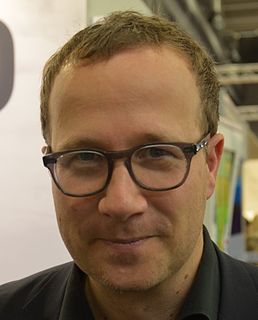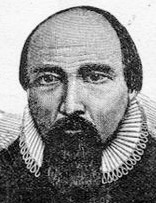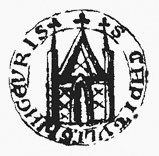 W
WAndri Snær Magnason is an Icelandic writer. He has written novels, poetry, plays, short stories, and essays. His work has been published or performed in more than 30 countries.
 W
WBjarni Vigfússon Thorarensen was an Icelandic poet and official. He was deputy governor of northern and eastern Iceland. As a poet he was influenced by classicism and romanticism. Politically he was aligned with the Fjölnismenn and favored the reestablishment of the Althing at Þingvellir. He was a friend of Jónas Hallgrímsson whose own poetry was influenced by Bjarni's work.
 W
WValdimar Briem was an Icelandic poet, prelate, hymnwriter and translator. He served as the first Suffragan Bishop of Skálholt from 1909 till 1930.
 W
WEinar Benediktsson, often referred to as Einar Ben, was an Icelandic poet and lawyer.
 W
WGrímur Thomsen, Icelandic poet and editor, was born in Bessastaðir in 1820. He was the son of Þorgrímur Tómasson, a goldsmith. In 1837, he went to the University of Copenhagen, where he studied law and philology, but he also became interested in philosophy and aesthetics. He became an enthusiastic follower of the Pan-Scandinavian movement, although this was not generally favored by his countrymen.
 W
WGunnar Hámundarson was a 10th-century Icelandic chieftain. He lived in Hlíðarendi in Fljótshlíð and is probably better known as Gunnar of Hlíðarendi. He features prominently in the first half of Njáls saga, which tells of the chain of events ultimately leading to his death in battle.
 W
WHannes Þórður Pétursson Hafstein was an Icelandic politician and poet. In 1904 he became the first Icelander to be appointed to the Danish Cabinet as the Minister for Iceland in the Cabinet of Deuntzer and was – unlike the previous Minister for Iceland Peter Adler Alberti – responsible to the Icelandic Althing.
 W
WHallgrímur Pétursson was an Icelandic poet and a minister at Hvalsneskirkja and Saurbær in Hvalfjörður. Being one of the most prominent Icelandic poets, the Hallgrímskirkja in Reykjavík and the Hallgrímskirkja in Saurbær are named in his honor. He was one of the most influential pastors during the Age of Orthodoxy (1580–1713). Because of his contributions to Lutheran hymnody, he is sometimes called the Icelandic Paul Gerhardt.
 W
WJón Arason was an Icelandic Roman Catholic bishop and poet, who was executed in his struggle against the imposition of the Protestant Reformation in Iceland.
 W
WJón Ólafsson was an Icelandic editor, journalist, and poet.
 W
WJónas Hallgrímsson was an Icelandic poet, author and naturalist. He was one of the founders of the Icelandic journal Fjölnir, which was first published in Copenhagen in 1835. The magazine was used by Jónas and his fellow Fjölnismenn to promote Icelandic nationalism, in the hope of giving impetus to the Icelandic Independence Movement. Jónas remains one of Iceland's most beloved poets, penning some of the best-known Icelandic poems about Iceland and its people. Since 1996, Jónas's birthday has been officially recognised in Iceland as the Day of the Icelandic Language. On 16 November each year, the Jónas Hallgrímsson Award is awarded to an individual for their outstanding contribution to the Icelandic Language.
 W
WKarl Jónsson (1135–1213) was an Icelandic writer, poet and clergyman.
 W
WMagnús Jónsson or Magnús prúði was an Icelandic official and poet.
 W
WMatthías Jochumsson was an Icelandic clergyman, poet, playwright, and translator. He is best known for his lyrical poetry and for writing the national anthem of Iceland, "Lofsöngur", in 1874.
 W
WSigvatr Þórðarson or Sigvat the Skald (995-1045) was an Icelandic skald. He was a court poet to King Olaf II of Norway, as well as Canute the Great, Magnus the Good and Anund Jacob, by whose reigns his floruit can be dated to the earlier eleventh century. Sigvatr was the best known of the court skalds of King Olaf and also served as his marshal (stallare).
 W
WSigurjón Birgir Sigurðsson, known as Sjón, is an Icelandic poet, novelist, and lyricist. His pen name is an abbreviation of his given name (Sigurjón). Sjón frequently collaborates with the singer Björk and has performed with The Sugarcubes as Johnny Triumph. His works have been translated into 30 languages.
 W
WStephan G. Stephansson was a Western Icelander, poet, and farmer. His given name was Stefán Guðmundur Guðmundsson.
 W
WSveinbjörn Egilsson was an Icelandic theologian, classicist, teacher, translator and poet. He is best known for the work he did during his time as the rector of The Learned School of Reykjavík, particularly his translations of Homer's Odyssey and Iliad into Icelandic.
 W
WThor Vilhjálmsson was an Icelandic writer. He was born in Edinburgh, Scotland. Over the course of his life Vilhjálmsson wrote novels, plays and poetry and also did translations. In 1988 he won the Nordic Council Literature Prize for his novel Justice Undone. In 1992, he won the Swedish Academy Nordic Prize, known as the 'little Nobel'.
 W
WÞórarinn Eldjárn is an Icelandic writer, particularly well known in Iceland for his humorous poetry books for children.